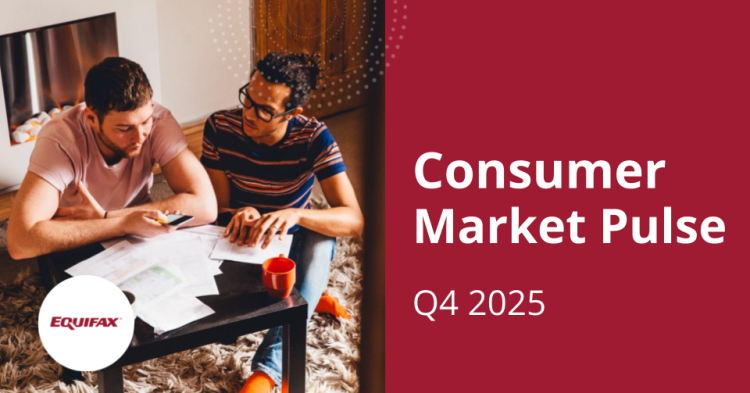Equifax signs data agreement with the ATO to further strengthen its Commercial Credit Reports
Equifax has signed an agreement with the Australian Taxation Office (ATO) to receive commercial tax default data, with the intention of displaying this information in its commercial credit reports. The inclusion of commercial tax default data in Equifax reports will provide customers with actionable data during the credit application process that was previously not available, allowing them to evaluate risk more accurately.
SYDNEY – 28 April 2022 – Equifax, the global data, analytics and technology company, has signed an agreement with the Australian Taxation Office (ATO) to receive commercial tax default data, with the intention of displaying this information in its commercial credit reports.
The inclusion of commercial tax default data in Equifax reports will provide customers with actionable data during the credit application process that was previously not available, allowing them to evaluate risk more accurately.
Scott Mason, General Manager Commercial and Property Services at Equifax, said: “After almost a decade of discussion, we’re excited to be signing this new agreement with the ATO to integrate commercial tax default data into our commercial credit reports. This data will be incredibly valuable to our customers, as it's widely understood that tax debts are often the last ‘bill’ that businesses typically pay. This means that outstanding tax debt indicates either an inability to pay, or a wilful decision not to pay tax - both indicators of risk that our customers will now have greater oversight of.
“This new data stream will help not only our commercial customers, but anyone who uses Equifax insights. Consistently improving our comprehensive commercial and consumer reporting is part of what makes Equifax the leading credit bureau and data, analytics and technology company in Australia and New Zealand,” Mr Mason said.
As of 30 June 2021, the ATO had approximately $38 billion in collectable debt, with small businesses accounting for the majority of this ($24.3 billion)1. With the ATO looking to step up collection after a grace period during COVID, understanding a company’s tax information is a vital piece of the puzzle for organisations wanting to manage their credit risk in relation to new and existing customers.
The ATO may report a business tax debt to credit reporting bureaus if it meets the following criteria2. The business:
- Has an Australian business number (ABN) and is not an excluded entity3.
- Has one or more tax debts and at least $100,000 is overdue by more than 90 days.
- Is not engaging with the ATO to manage its tax debt.
The ATO encourages taxpayers with tax debts to speak with their registered tax practitioner or call the ATO on 13 11 42 (8am to 6pm local time, Monday to Friday). More information is available on the ATO’s website ato.gov.au/disclosurebusinesstaxdebt.
Sources:
1 https://www.transparency.gov.au/annual-reports/australian-taxation-office/reporting-year/2020-21-49
2 https://www.ato.gov.au/General/Paying-the-ATO/If-you-don-t-pay/Disclosure-of-business-tax-debts/
3 An excluded entity is either a deductible gift recipient, complying superannuation fund, registered charity, or government entity.
###
ABOUT EQUIFAX
At Equifax (NYSE: EFX), we believe knowledge drives progress. As a global data, analytics, and technology company, we play an essential role in the global economy by helping financial institutions, companies, employers, and government agencies make critical decisions with greater confidence. Our unique blend of differentiated data, analytics, and cloud technology drives insights to power decisions to move people forward. Headquartered in Atlanta and supported by more than 13,000 employees worldwide, Equifax operates or has investments in 24 countries in North America, Central and South America, Europe, and the Asia Pacific region. For more information, visit www.equifax.com.au or follow the company’s news on LinkedIn.
FOR MORE INFORMATION
[email protected]
DISCLAIMER
Purpose of Equifax media releases:
The information in this release does not constitute legal, accounting or other professional financial advice. The information may change, and Equifax does not guarantee its currency or accuracy. To the extent permitted by law, Equifax specifically excludes all liability or responsibility for any loss or damage arising out of reliance on information in this release and the data in this report, including any consequential or indirect loss, loss of profit, loss of revenue or loss of business opportunity.
Related Posts

Mortgage demand hits four-year high as a second consecutive quarter of double-digit growth for credit cards is observed and most prominent among younger Gen Z’s.

The latest Equifax Business Market Pulse for Q4 2025 reveals a multi-speed recovery. Large businesses are leading the way on credit demand growth, with an observed increase in overall demand reaching heights of up to +19.4% (trade credit) in some sectors, such as hospitality.
